Back Home
I can't believe I am back home already. Antarctica is half a world away but is now a piece of who I am. My life will forever include references to the times I had there, the lessons I was taught, and the things I learned. Standing in line at the Auckland airport I met another person going home from South Pole. He was a young meteorologist who was excited to meet a PolarTREC teacher. It was a PolarTREC teacher's journal that first inspired him to pursue polar weather.
Coming back, the difference in worlds is remarkable. Those serving and working in Antarctica sacrifice a lot to do this work. Fortunately, my family were very caring and supportive, keeping my stocking hung by the chimney with care all those weeks - not touching a single Reeses peanut butter tree.
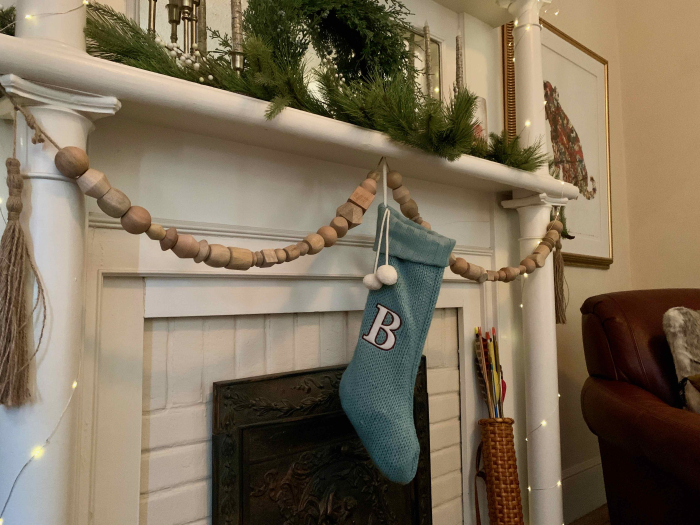
I was really excited to share all of my experiences with my family, friends, coworkers, students, and community members. I was so overwhelmed at first though. The first couple dozen people who asked about my experience got a "it was really cool" joke, as I knew our passing conversations would never do the slightest justice to the experience. With time, I have gotten better at weaving the relevant stories for the audience.
A brief comment about PolarTREC to a store clerk just became a half hour conversation with a new friend about taking care of the planet. How long had he been waiting to share his love of polar ecosystems with someone? The experience has inspired me to continue to build connections between people and polar science. By connecting to new and diverse audiences, we can insure that future generations of scientists and supporters stay involved in polar research.
[https://www.polarimpactnetwork.org](Polar Impact)
I was glad to see my students again and pick up with my classes, projects and other adventures. One of the first things I had to do though was get rid of that "beard". In Antarctica it helped me pass for a grizzled veteran of polar research but it was time for me to start connecting with civilians again - and it made me look kind of old. Off you go.
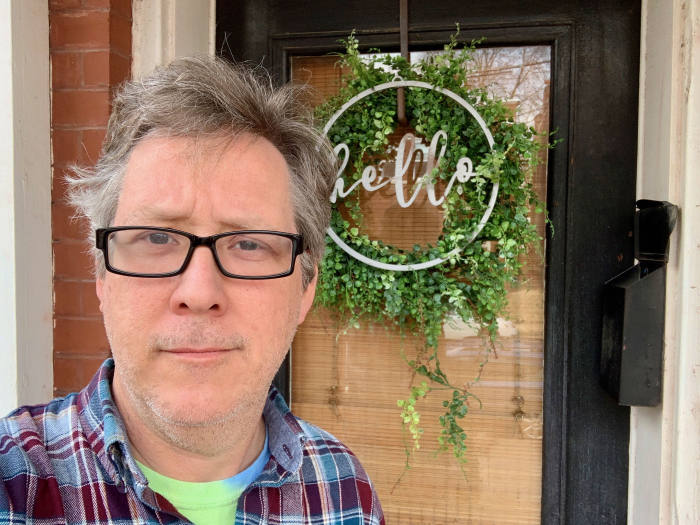
Key adjustments to a temperate climate
- Darkness
- Moon and stars
- Insects
- First sprouts of daffodils
Current affairs
This past week we took our middle school on their version of an Antarctic expedition - our annual winter camping trip. My 25 Adventure Club students braved three days in temperatures in the teens. The perspective of an Antarctic traveller must have made an impression as I bragged to their parents how not a single student complained about the cold. The eavesdropping student replied "we knew it wouldn't make a difference because you've been to Antarctica". We have large quantities of carbon fuels here though, which made the cold merely an adventure.
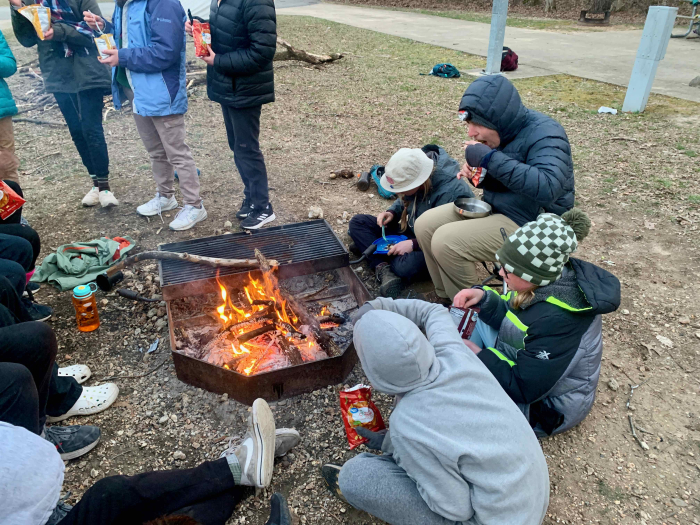
I had to document for my journal though, that I do indeed come from a place of experience with polar weather: Here is our hot chocolate pot the next morning:
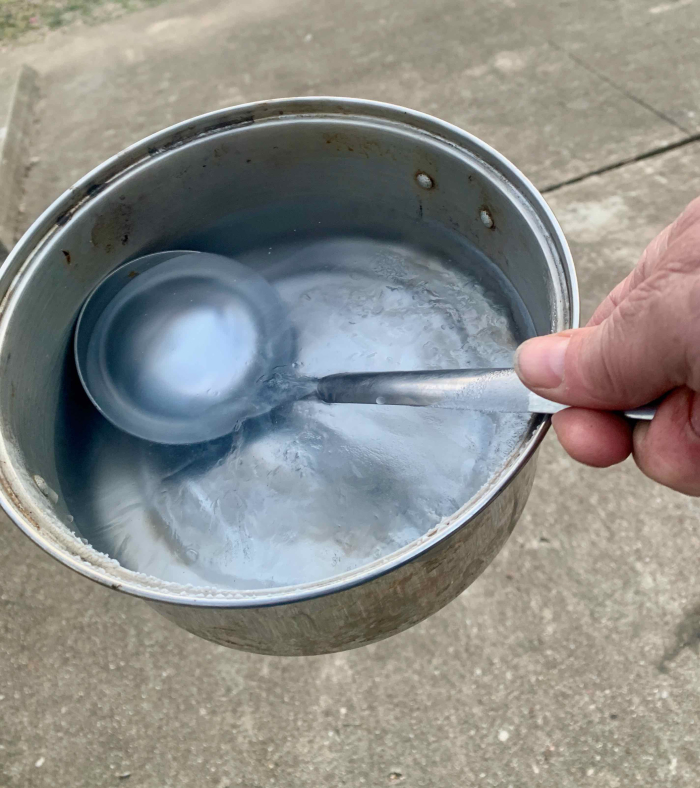
During my time in Antarctica, my sustainability class began a student run project to improve air quality in district buildings by growing and distributing indoor plants to all of our classrooms. This is something I missed in Antarctica and mentioned to them in a Zoom while I was in McMurdo - all the plants you saw there were fake. They have grown over a hundred plants, made or sources the pots, written a children's book about how to care for plants, produced a rap video about the plant project, and taught over a dozen lessons to early childhood and elementary students. I am so proud of their accomplishments while I was away! Here they are teaching 6th graders about the power of photosynthesis:
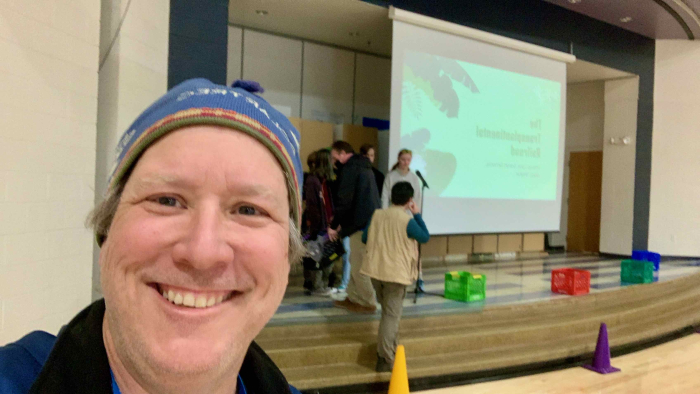
Thanks to Everyone
I would like to extend my sincerest thanks to the PolarTREC team for all of their love and support for us PolarTREC teachers. They put in countless hours organizing expeditions, setting up events, preparing teachers, opening communications, providing resources. They are a truly remarkable group of people who have left an enduring legacy for polar education.
I would like to thank the Wormherders for taking me on as a part of the team. At a time when slots in McMurdo were a rare commodity, Dr. Adams went above and beyond to find a place for a K-12 educator. He and his team are gifted scientists, dedicated to exploring and understanding our polar ecosystems. You will never find a more dedicated group of individuals! I am humbled by the opportunity and hope to return the effort and help produce a few future polar researchers, activists, and educators.
My students and school community have been so supportive! You are the best. Thanks to my administrators and coworkers for pitching in and helping me live out my dream science experience! I have been lucky to have so many of you along on my Antarctic experience. I appreciate all you have done for me.
I would also like to thank the National Science Foundation and ARCUS for supporting the PolarTREC program, making polar science experiences available to teachers, and helping bring polar science into the classroom.
My and daughter are the greatest and without them I never would have been able take this on. Let's hear it for the families of polar scientists!
Next Steps
Stay tuned for lessons and lesson learned. I have incorporated my experience into just about everything I do in the classroom now. I am working on lessons using our soils data that can be used in middle and high school classes. Our plan is to create a LTER experience as a part of our middle school curriculum. I have several presentations lined up in the coming weeks and am looking forward to many more. This experience will forever inform my instruction and practice. Please reach out to me if you would like to use me as a resource in your classroom, project, or program.
- < prev
- 29 of 29


Comments